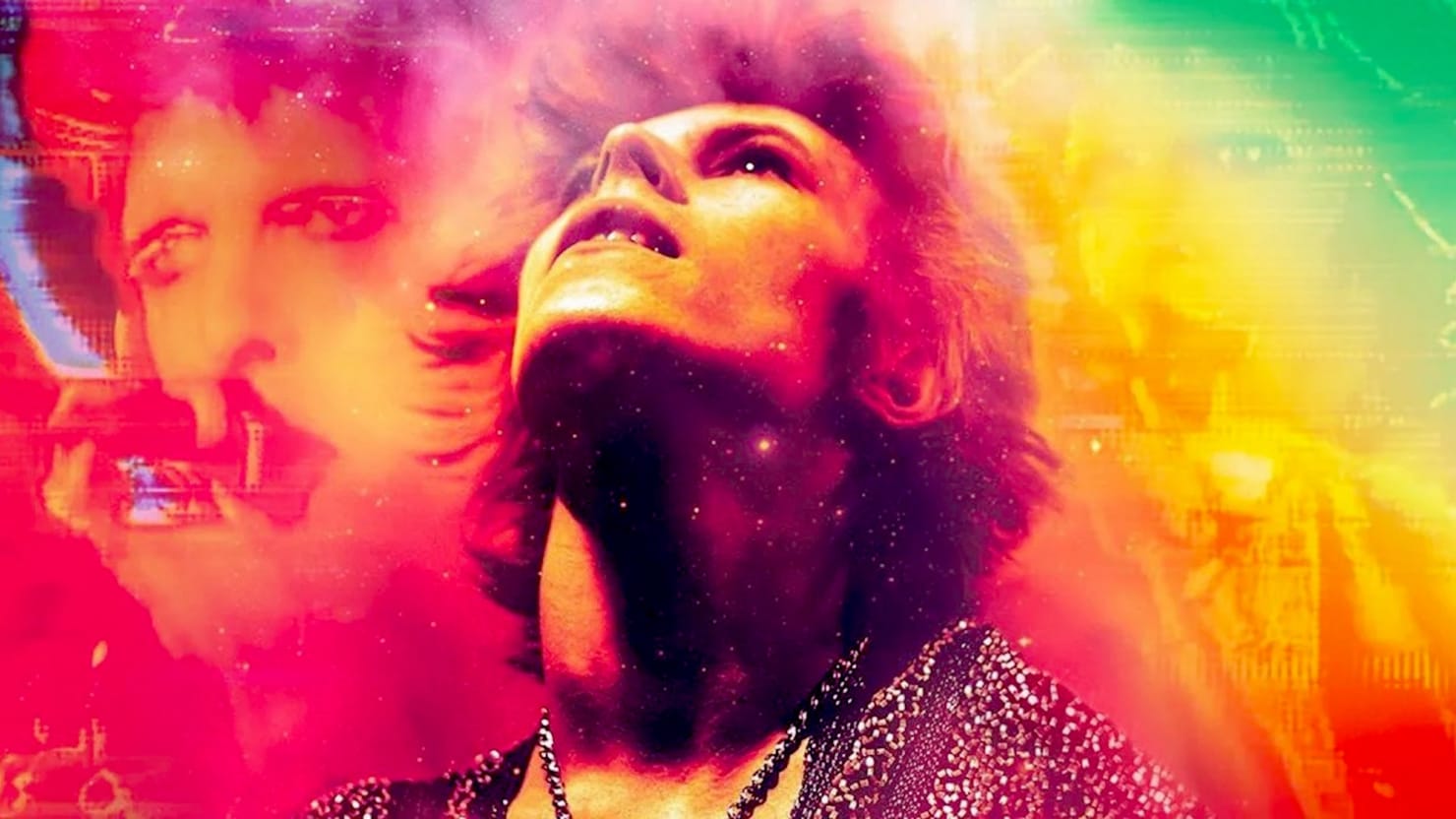Describing the indescribable – “Moonage Daydream”

The iconic musician David Bowie (1947–2016) was a true original. But ironically difficult to describe without resorting to worn-out clichés about the “chameleon” who “reinvented himself.”
It is therefore refreshing that Brett Morgen’s Bowie film “Moonage Daydream” does not employ a didactic, pedagogical narrator but chooses to present Bowie’s life and work in a fragmented, impressionistic form. The question remains whether this yields a better result.
In the end, the answer depends on what one wants to get out of the film. A Bowie “documentary” (note the quotation marks) will always be created by fans for fans – and the hagiographic overtones therefore hang heavily over the film.
But aside from that: The material is overwhelming and is clearly assembled with precisely that purpose: to overwhelm the viewer. Live recordings from Bowie’s entire career are mixed with interview clips, private recordings – and a kaleidoscopic array of found footage, meant to illustrate Bowie’s infinitely many sources of inspiration.
There is a kind of loose chronology in the narrative, spanning from Ziggy Stardust through the USA and Berlin to Let’s Dance. But – there is just as much jumping back and forth in time. For instance, one of the more successful sequences shows a mature Bowie performing his old hit “Space Oddity” –and then cuts back to the young man singing it as a newly written song.
The non-chronological approach occasionally succeeds in revealing hidden connections. But unfortunately, it somewhat obscures the much-discussed evolution in Bowie’s work. He ends up appearing as one artist who gradually found his expression. The many personas he adopted come across as superficial stylistic traits – not as reflections of the will to radical reinvention, which was the true guiding principle in Bowie’s artistic career.
Brett Morgen uses quotes spoken by Bowie himself – sometimes in dialogue with (unnamed) interviewers – as a commentary track for the film. His reflections on what it really means to be an artist – and what creativity really is – are clearly the best and most thoughtful. But unfortunately, several of the quotes suffer from being torn out of an unknown context. And many end up sounding like half-digested, sophomoric philosophical musing – completely contrary to the intelligent and erudite individual Bowie actually was.
On the other hand, the music soundtrack is absolutely excellent – and is in itself enough to make the film worth watching. Deep dives have been made into the archives for alternative versions of songs, and well-known tracks have been rethought and remixed – often even mixed across epochs. In this way, even die-hard Bowie fans are bound to rediscover his music from new and surprising angles.
I wasn’t entirely convinced by “Moonage Daydream” as a film. But the soundtrack has already established itself as one of my favorite Bowie albums.
Leave a Reply